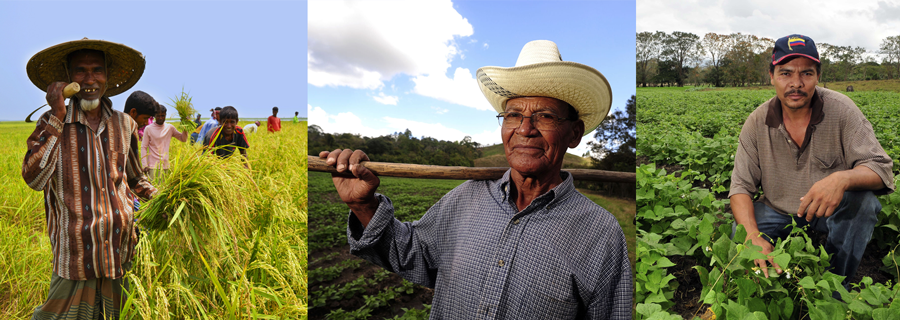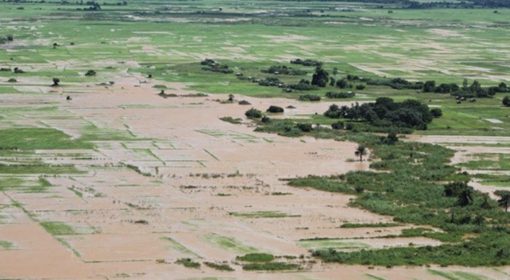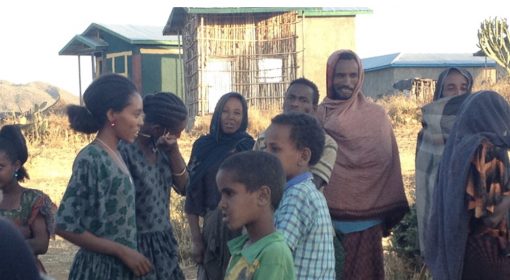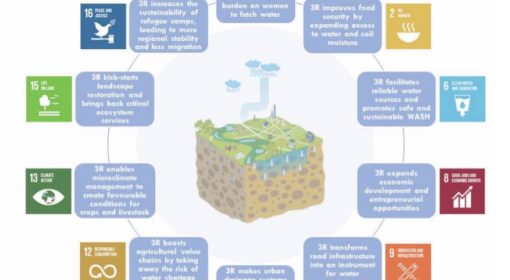Life Skills – the missing foundation to improving socio-economic growth
Posted by Otto Hoffman
February 15, 2017

Image courtesy Wikimedia
“Harvest to Poverty”
The agricultural sector in many developing countries is facing innumerable challenges, thus requiring effective and vibrant extension services to improve agricultural productivity. Their economies depend on agriculture and employing a high workforce. Agriculture is also commonly seen as a source of food, which every household requires. When practiced properly, many smallholder farmers are able to lift themselves out of extreme poverty.
Lately, much emphasis is given to smallholder farmers that need continued assistance in capacity building to commercialize agriculture and climate-smart agriculture by sustainably increasing productivity, enhancing adaptation and mitigation practices through increased mechanization, improved soil management and efficiency in storage of water and management, to improve food security and gradually improve a country’s socio-economic well-being. Also, in the context of climate change, these topics are constantly reiterated during meetings organized by large global development organizations and development practitioners.
Funding streams are materializing from the international community to improve the agricultural sector in the global south. But, will the increased attention and funding concerning these topics have a greater impact on reducing the persistent poverty in rural areas?
Repeated development patterns
Over the past decades, most development agents, such as Non-Governmental Organizations, practitioners, consultants, and researchers, believe that to effectively improve food security, especially for the sheer number of smallholder farmers in rural areas, programs rolled out need to focus on the commercialization of agriculture, adopting climate-smart practices, access to information about credits for investments; and access to markets. Successful examples and developments in this field resonate from all corners of the globe where proper coordination and uptake of agricultural programs developed by NGO’s, practitioners, researchers and governments for smallholder farmers and the country prospered from its accomplishments.
For instance, a recent report published in 2016 by FAO, highlighted that Ethiopia and Rwanda achieved substantial productivity growth and a decrease in rural poverty. Farmers have transitioned from subsistence to commercial farming. Methods such as, the establishment of family farming knowledge platforms, improved linkages between agricultural research and extension for value chain development, land consolidation, improved use of inputs, increased cultivated terraces, increased areas under irrigation and mitigation measures against soil erosion, as well as improved financial and micro-finance services, proved to have positive impacts on agricultural productivity. Such agricultural development programs mainly focus on commercialization and climate change adaptation measures. However, given that smallholder farmers are more knowledgeable about climate-smart agricultural practices, farmers can only be prepared to some extent against the adverse impacts of climate change. For example, smallholder farmers who experience drought, flooding or pests losing their agricultural produce will need to have some form of savings that can help them become more resilient to such shocks. In fact, financial planning, provident and prudent spending are important ‘Life Skills’ that need to be harnessed and honed. Furthermore, other successful agricultural programs implemented in the past lack information on follow-ups showing how local economies performed and whether their programs were truly sustainable. Reports and documents issued by development agents fail to mention how smallholder farmers have transitioned to sustainable pathways in terms of spending their incomes prudently. Some countries or regions within countries are endowed with abundant natural resources, yet extreme poverty is still experienced by many smallholder farmers.
Many of these programs share repeated development patterns with slight adjustments in the implementation activities. While these programs are important, it is regarded as agricultural sustainability. In light of this, what is agricultural sustainability? It is generally regarded as a type of agriculture, focusing on producing enduring crops and livestock while having negligible impacts on the environment.
However, countries that succeeded in the successful agricultural development and implementation programs still have patchy areas of unsuccessful outcomes. The heart of the root problems necessitates more attention and critical analyses of unsuccessful outcomes, meaning that we have to look back at our own educational systems and/or curricula.
Education is key in building a strong foundation needed to build the learning process within oneself. Increasing evidence from studies in developing countries shows that there is a strong link between education and agricultural output. Mostly, educational systems are outdated and require an overhaul. The educational systems’ standard subjects offered are Mathematics, studies in language, Arts, and Sciences that include Physics, Biology, and Chemistry. Nevertheless, looking closer at the educational curricula, an important subject that’s missing and does not require examination procedures – is Life Skills – and this somehow kind of makes this subject dismissive in some people’s perspective (parents, teachers and the student’s themselves).
Life skills is a subject that eases in the questions and answers of adulthood that maybe some students haven’t even thought about at that young age. From an educational perspective, it is – the furtherance of the Life Skills curriculum that normally runs throughout secondary and higher education. The subject aims to cover personal, social and practical skills and topics that particularly relate to young adults in preparation for life after school. Personal and career opportunities are generally researched; Résumés and applications are written and interview techniques are practiced. Also, the focus on interpersonal skills such group dynamics, healthy adult relationships, practical skills that include debating, discussion and the budgeting of personal finances. Therefore, it is an important subject and a topic that needs attention, recognizing the high unemployment rate, especially amongst the youth in many developing countries. So, how to keep farming interesting for young people? A major challenge is not only in finance returns but also in life skills – CV writing, for instance, would be associated with finding employment in cities, etc.
It appears that both, governments and development agencies engaged in the agricultural sector overlook the importance of facilitating activities or programs about budgeting of personal finances, which has a strong link and impact on an individuals’ well-being. Many agricultural development programs expect that smallholder farmers already have a sound understanding in budgeting of personal finances. Although, some farmers are knowledgeable and master their personal finances well whilst others lack good budgeting of personal finances.
Furthermore, micro financial institutions offering financial support to smallholder farmers also share a similar trend with development agencies and oversee the importance of facilitating these farmers about good budgeting of personal finances. To bring services closer to smallholder farmers, they require a better understanding of budgeting. Extracting topics from Life Skills curriculum agricultural extension agents, NGO’s and practitioners can offer skills and ideas that farmers can adapt, helping them to improve their way of farming through better financial management.
A view from Moshi, Tanzania
Agriculture is the backbone of the Tanzanian economy engaging approximately 70/80% of the population, mainly in rural areas. Looking into a case of smallholder farmers in Moshi Rural District, in Northern Tanzania, they grow a variety of crops and vegetables. Moshi Rural District and its neighboring District, Hai, are characterized by agriculture and known to have the biggest potential in the Kilimanjaro Region. The district is rich in water resources as many of the sources originate from rainfall in the mountain forest area of Mount Kilimanjaro and from the melting of the glaciers, forming several streams flowing down the mountain. Traditional irrigation farming schemes are widely practiced, especially during the dry seasons. Rain-fed agriculture is practiced between April to June and from October to November.
For many, agriculture is also the most important source of income. The region has a good equatorial climate allowing a year-round production. Many farmers use family labor for cultivation and sometimes hire paid labor. Most smallholder farmers live in simple wooden or clay dwellings. Smallholder farmers in the south of Moshi Rural District described their agricultural livelihoods and the whole agricultural cycle from plowing, sowing, harvesting and marketing. They further explained that there is abundant water supply and irrigation farming is a common practice.
Speaking to one particular farmer, Juma, he explained to own five acres of land and has access to water from the traditional irrigation scheme that’s existed for many generations. Access to water through small furrows irrigating three acres of his land is mainly done during the dry seasons. During the raining seasons, which occur twice a year, he relies on rain-fed agriculture. Juma described that the other two acres are left idle since he cannot maintain the land due to the lack of a tractor to plow the land. Selling the idle land is another option, he explained. When further asked about what he grows and how much income he makes after a harvesting season, he explained that he grows maize, cabbage, beans and mostly onions bringing in a turnover of approximately 19,000,000 TSH (equivalent to 8,000 EUR) after each harvesting season.
Moreover, he pointed out that some profits are spent on pesticides and fertilizer, buying seeds, and paying his children’s school fees and to cover the household needs. Besides, he iterated that he did not have a bank account nor wanted to open an account because of various complications, such as the application procedure, eventually admitting that he does not know how to open an account.
It is a general trend: smallholder farmers in the world need to commercialize to maintain decent family incomes from small plots. Although possible, it brings big personal risk (the suicides of rural farmers in India or the ordeal of some in Central Nepal selling their kidneys to pay off their debts) – and hence, Life Skills are so important.
They harvest, then its luxury time
Ordinarily, as an outsider, Juma can be considered as doing well. But after a closer inspection of his living conditions and the surrounding area, it is quite apparent that’s not the case. He had a problem with food storage caused by an inadequate storage facility rendering stored crops vulnerable to insects and pests. At another glance of the farming community in the area, many smallholder farmers still wore ragged clothes, despite the staggering incomes after a harvest season.
As I left the farm, passing through the village, many people from the farming community gathered around bars to drink alcohol. Alcohol consumption is high in rural areas – where most of the hard earned money is squandered.
“Many farmers make a lot of money after the harvesting seasons and experience an overwhelming wave of money, they marry women, spend money on expensive clothes and cars. Once the money is finished many farmers divorce their wives and turn back to buying seeds and farming again – back to how they started. During that transition, farmers try to arrange money to get their land for farming or rent their farmland to get money”, said Hussein, a local resident from Moshi town who buys and sells agricultural produce from these farmers in the area.
Hussein, further explained that lack of knowledge is a major problem for many rural farmers. “They are not going to be the same all the time. At some point they need to take their children to college and will need more money. Other things are common sense they know they need seeds and other farm inputs. They wait till money finishes, they think things are always going to be there…, like water.” He further, explained that “life is not going to be the same all the time, responsibility is increasing, so need to reduce the workload. Employ people – but they don’t want to. It is not good to work like that all your life. They harvest, then its luxury time. They have knowledge, but do not know how to use it.”
“Many farmers work hard, relax, and then fail to think about the future. Improving their well being through various ways is absent since they know they are going to do the same thing again. Also, the people around them influence this behavior indirectly and directly. When surrounded by the same people doing the same things – you don’t develop yourself”, Hussein said.
Transforming livelihoods along sustainable pathways
Information is key in farming. Many smallholders’ farmers lack adequate knowledge on how to manage their personal budgets. Development agents need to rethink about what type of information is suitable to provide in order to tackle a common and rooted problem that many farmers experience. Therefore, the solutions should not just focus on supporting farmers in adapting and mitigation measures on climate change, access to technologies, information and credit for investment, access to markets, but also taught how to manage budgeting of personal finances, especially after a harvesting season so that they are better prepared for the next cultivation season.
An entry point for development agents and financial institutions can be initiated to work together and better inform farmers about sound budgeting of personal finances, particularly geared towards the agricultural sector. The idea is to help them get out of the debt cycle, which many farmers inherit from their parents or plunge into due to lack of knowledge.
Also, climate and development funds need to channel efforts, including programs on climate change and to improve the agricultural sector by focusing more on working together with local governments to establish manuals or curriculum that touch upon the basics of budgeting for personal finances. Capacity building through better budgeting of personal finances is another approach to adaptation and mitigation measures. Equipping farmers to have the capability to become resilient even under different circumstances can lead to an improved socio-economic well-being.



